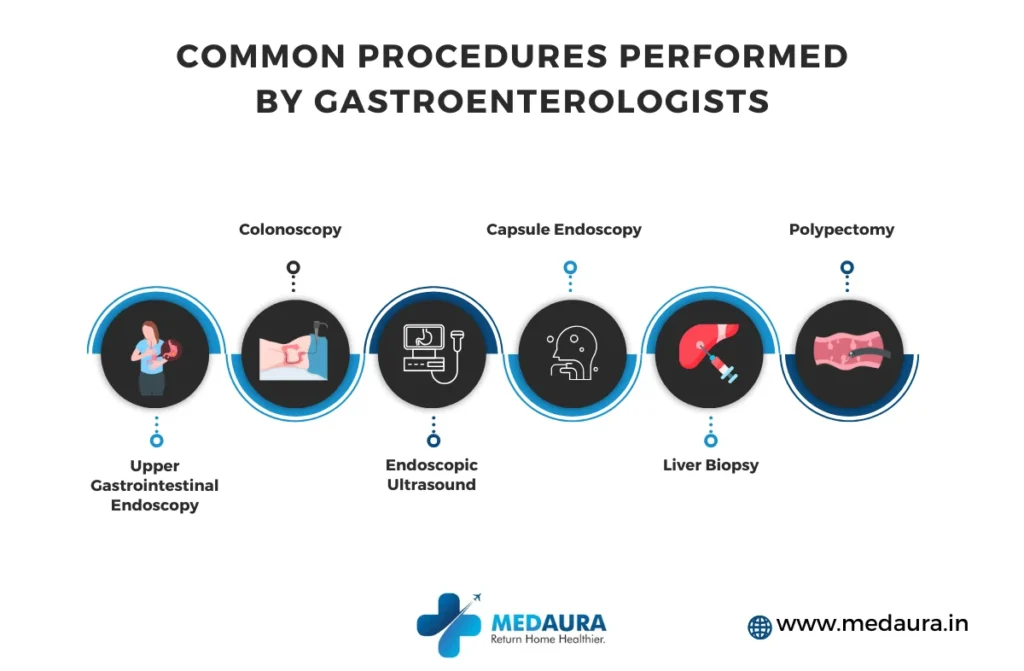Your digestive system does more than break down food—it affects your immunity, energy levels, and overall well-being. When things go wrong, from constant acidity to chronic bloating, it’s a signal that your gut needs expert attention. A gastroenterologist is a specialist trained to diagnose and treat disorders of the digestive tract, liver, pancreas, and gallbladder. Finding the best gastroenterologist in Chennai, top liver specialist in Chennai, means placing your health in the hands of someone who can identify the root cause and guide you toward lasting relief with skill and empathy.
What is Gastroenterology?
Gastroenterology is the study of the normal function and diseases of the digestive system, top gastroenterologist in Chennai including the esophagus, stomach, intestines, liver, pancreas, gallbladder cancer, and bile duct. The best gastroenterologist in Chennai and top 3 gastroenterologist in Chennai are experts in digestive motility, nutrient absorption, waste elimination, and liver function. They offer specialized care for complete digestive health.
Who is a Gastroenterology Specialist?
A Gastroenterology Specialist can help you deal with any gastrointestinal tract disease. A best gastroenterologist in Chennai treats patients by performing endoscopic procedures to view or diagnose the GI tracts or handles the patient through medication. As the name implies, gastrology is a specialized area in the medical field that focuses on gastrointestinal tract disorders. Consult the top liver specialist in Chennai for expert care in liver and digestive health. Therefore, when there are alarming signs in the gastrointestinal tract creating structural or psychological changes, it is recommended to seek the best gastroenterologist in Chennai immediately.
Generally, gastroenterologist doctors in Chennai work in clinics and certain hospitals. However, at VS Hospitals, you can find the best gastroenterologist in Chennai. They do not perform surgeries, but if you face any abnormalities in the gastrointestinal tract right from the passage of food in the food pipe, digestion in the stomach, absorption, or excretion of food—you can approach the best gastroenterologist in Chennai to get it treated. Here’s the list of top gastroenterologist in Chennai hospitals.
Conditions Treated
Gastroenterologists treat a variety of conditions, including:
- Gastroesophageal reflux disease (GERD): A chronic condition causing acid reflux and heartburn, managed through medications or lifestyle changes.
- Irritable bowel syndrome (IBS): Characterized by abdominal pain, bloating, and irregular bowel habits, IBS requires personalized treatment plans.
- Liver cirrhosis: Scarring of the liver often caused by chronic liver disease, requiring regular monitoring and possible transplantation.
- Pancreatitis: Inflammation of the pancreas, treated with medications, dietary changes, or surgery.
- Crohn’s disease: A chronic inflammatory bowel disease managed through medications and sometimes surgery.
- Colorectal cancer: Early detection and advanced treatments are vital for managing this severe condition.
Best Gastroenterologist Specialist in Chennai

Dr. Tarun J George
Dr. Tarun J George with expertise in endoscopic procedures and the treatment of GERD and hepatitis, Dr. Tarun J George offers comprehensive care for a wide range of digestive issues. His patient-focused approach makes him highly recommended among peers and patients alike.
- Qualification: MBBS, MD, DM (Gastroenterology)
- Expertise: Endoscopic Procedures, GERD, Hepatitis
- 5+ years of experience

Dr. Karthik Natrajan
Dr. Karthik Natrajan’s expertise in pediatric gastroenterology makes him a trusted choice for young patients with digestive disorders. His compassionate care and dedication to delivering the best possible outcomes make him stand out in the field.
- Qualification: MBBS, MD, DM (Gastroenterology)
- Expertise: Pediatric Gastroenterology, Celiac Disease, Endoscopy
- 8+ years experience
Dr. Mohammed Ali

Dr. Mohammed Ali is an expert in the field of gastroenterology with a focus on liver and pancreatic disorders. His expertise extends to complex endoscopic procedures, offering cutting-edge treatments for a variety of gastrointestinal issues. His commitment to patient care and attention to detail makes him one of the best gastro doctors in Chennai.
- Qualification: MBBS, MD, DM (Gastroenterology)
- Expertise: Hepatology, Pancreatology, Advanced Endoscopy
- 43+ Years Experience Overall (21+ years as specialist)
Dr. J. Saravanan

Dr. J. Saravanan, with years of experience in treating IBD and liver disorders, Dr. J. Saravanan has gained a reputation as a leading gastroenterologist. His personalized treatment plans and empathetic approach to patient care set him apart in the field.
- Qualification: MBBS, MD, DM (Gastroenterology)
- Expertise: Inflammatory Bowel Disease (IBD), Liver Transplant
- 25+ Years Experience Overall (10+ years as specialist)
Dr. K. Premkumar

Dr. K. Premkumar is known for his proficiency in advanced endoscopic procedures. His skill in diagnosing and treating GERD and other gastrointestinal disorders has earned him recognition as one of the best gastro doctors in Chennai.
- Qualification: MBBS, MD, DM (Gastroenterology)
- Expertise: Endoscopy, Colonoscopy, GERD Treatment
- 19+ Years Experience Overall
Dr. Aswin Krishna

Dr. Aswin Krishna specializes in hepatology and the treatment of complex biliary and pancreatic conditions. His expertise in managing liver diseases, coupled with a patient-centric approach, makes him a highly respected figure in gastroenterology.
- Qualification: MBBS, MD, DM (Gastroenterology)
- Expertise: Hepatology, Biliary Diseases, Pancreatic Disorders
- 11+ Years Experience Overall (2+ years as specialist)
Prof. Mohamed Rela

Prof. Mohamed Rela A globally renowned liver transplant surgeon is a pioneer in liver transplantation. His extensive experience and innovation in the field have made him one of the most sought-after gastroenterologists, especially for complex liver surgeries.
- Qualification: MBBS, MS, FRCS (Gastroenterology)
- Expertise: Liver Transplantation, Hepatobiliary Surgery
- 28 +years of experience in liver transplantation.
Dr. J. Vijayan

Dr. J. Vijayan is an expert in managing liver diseases and gastrointestinal cancers. His skill in endoscopic ultrasound and advanced diagnostic techniques makes him one of the leading gastroenterologists in Chennai.
- Qualification: MBBS, MD, DM (Gastroenterology)
- Expertise: Hepatology, Gastrointestinal Oncology, Endoscopic Ultrasound
- 43+ Years Experience Overall (34+ years as specialist)
Dr. Sarojini Parameswaran

Dr. Sarojini Parameswaran is an expert in managing digestive disorders with a focus on women’s health. Her compassionate care and expertise in IBS treatment have made her a trusted gastroenterologist in Chennai.
- Qualification: MBBS, MD, DM (Gastroenterology)
- Expertise: Irritable Bowel Syndrome (IBS), Women’s Digestive Health
- 30+ Years Experience Overall (25+ years as specialist)
Dr. B. Mahadevan

Dr. B. Mahadevan Specializing in hepatology and liver disease management, Dr. B. Mahadevan’s expertise in treating cirrhosis and other liver-related conditions places him among the most respected gastroenterologists in the city.
- Qualification: MBBS, MD, DM (Gastroenterology)
- Expertise: Hepatology, Cirrhosis Management, Endoscopy
- 21+ years of experience

What are the Types of specialisations?
Gastroenterology includes several focused areas to diagnose and treat specific digestive issues. Choosing the right specialist among the top 3 gastroenterologist in Chennai ensures accurate care and faster recovery.
1. Hepatology – Liver Care: Specializes in fatty liver, hepatitis, and cirrhosis.
2. Pancreatobiliary Specialist: Handles pancreas, bile duct, and gallbladder disorders like gallstones or pancreatitis.
3. IBD Specialist: Treats Crohn’s disease and ulcerative colitis with long-term plans.
4. Interventional Endoscopy:Uses high-tech scopes to treat GI issues without surgery.
5. Pediatric Gastroenterology: Focuses on children’s digestive problems.
6. GI Oncology: Deals with cancers in the digestive tract.gist doctors in Chennai, especially if symptoms persist.
Types of Gastroenterology
- Medical Gastroenterology: Focuses on non-surgical treatments for conditions like IBS, IBD, and GERD.
- Surgical Gastroenterology: Involves laparoscopic and robotic surgeries for more complex issues.
Understanding these specialties is crucial when learning What is Gastroenterology, as it encompasses both medical and surgical approaches.
Medical Gastroenterologist
A medical gastroenterologist is a doctor who specializes in diagnosing, treating, and managing diseases of the digestive system. This includes the esophagus, stomach, intestines, liver, pancreas, and gallbladder. They use non-surgical methods such as medications, endoscopy, and lifestyle management to help patients maintain digestive health.
- Focuses on digestive system disorders and liver-related conditions.
- Treats problems like acid reflux, ulcers, IBS, IBD (Crohn’s & ulcerative colitis), hepatitis, and liver cirrhosis.
- Performs endoscopic procedures (endoscopy, colonoscopy, ERCP) for diagnosis and treatment.
Surgical Gastroenterologist
A surgical gastroenterologist is a specialist who performs surgeries on the digestive system to treat complex or severe gastrointestinal (GI) conditions. Unlike medical gastroenterologists who manage diseases with medicines and endoscopic procedures, surgical gastroenterologists handle conditions that require operative or minimally invasive surgical interventions.
- Specializes in surgical treatment of digestive system diseases.
- Performs surgeries on the esophagus, stomach, intestines, liver, pancreas, and gallbladder.
Why Should You Consult a Gastroenterologist?
A gastroenterologist specializes in diagnosing and treating conditions affecting the digestive system, including the stomach, intestines, liver, pancreas, and gallbladder. Consulting an expert ensures accurate diagnosis and effective long-term management.
1. Frequent Digestive Discomfort
Persistent bloating, acid reflux, or abdominal discomfort may point to underlying conditions such as gastric ulcers, digestive infections, or inflammation in the gut.
2. Acid Reflux or Heartburn
Ongoing heartburn may lead to GERD, which can damage the esophagus.
3. Liver-Related Issues
Fatty liver, hepatitis, or cirrhosis need expert care for proper monitoring.
4. Cancer Screening
Regular colonoscopy helps identify early signs of colon or stomach cancer, allowing for timely intervention before the disease progresses.
5. Gut Disorders Like IBS or IBD
Conditions like IBS or Crohn’s disease need tailored treatment plans.
Consulting the best gastroenterologist in Chennai ensures expert care from skilled gastroenterologist doctors in Chennai using advanced diagnostics and treatment methods.
Advanced Technologies and Treatments in Chennai
Chennai is at the forefront of medical innovation, and gastroenterology is no exception, top 10 gastroenterologist in Chennai. From robotic-assisted endoscopy to liver elastography, the best gastroenterologist in Chennai uses cutting-edge technology to deliver precise care. Hospitals here offer affordable gastroenterology treatment in Chennai without compromising quality. These advancements help in early detection and faster recovery. Whether you’re visiting a gastro specialist in Chennai for diagnostic procedures or seeking the best liver specialist in Chennai, the combination of modern tools and expert knowledge enhances patient outcomes significantly.
Highlights of advanced care in Chennai:
- High-definition endoscopy
- Minimally invasive techniques
- Advanced imaging for liver diseases
- Robotic surgery options
- Personalized treatment plans
Thanks to these advancements, the top 10 gastroenterologist in Chennai can deliver world-class care effectively.
How Much Do Gastroenterologists in Chennai Charge?
Costs vary by procedure:
- General consultation: ₹500–₹1,500
- Endoscopy: ₹2,500–₹6,000
- Colonoscopy: ₹6,000–₹18,000
- Capsule Endoscopy: ₹45,000–₹75,00
Despite the cost, gastroenterologist doctors in Chennai provide premium care and personalized treatment. When consulting with the best gastroenterologist in Chennai, you can be assured that you’re receiving high-quality care, whether it’s a simple consultation or a complex surgical procedure. The expertise of the best gastro surgeon in Chennai ensures that your health is prioritized at every step. Consult the best digestive disease doctor in Chennai for expert care and treatment.
Conclusion
Finding the best gastroenterologist in Chennai ensures that you receive expert care for any digestive issues you may be experiencing. From common problems like acid reflux to more serious conditions like liver diseases, a gastroenterologist’s role is crucial in diagnosing and treating gastrointestinal disorders. Chennai has many top specialists who offer world-class medical care. Find the best digestive disease doctor in Chennai for expert treatment of gastrointestinal and liver disorders. If you’re experiencing any GI issues, don’t wait. Schedule a consultation today with the best gastroenterologist in Chennai to ensure your digestive health is in the best hands possible.
Read Also: Best Hepatologist in India




